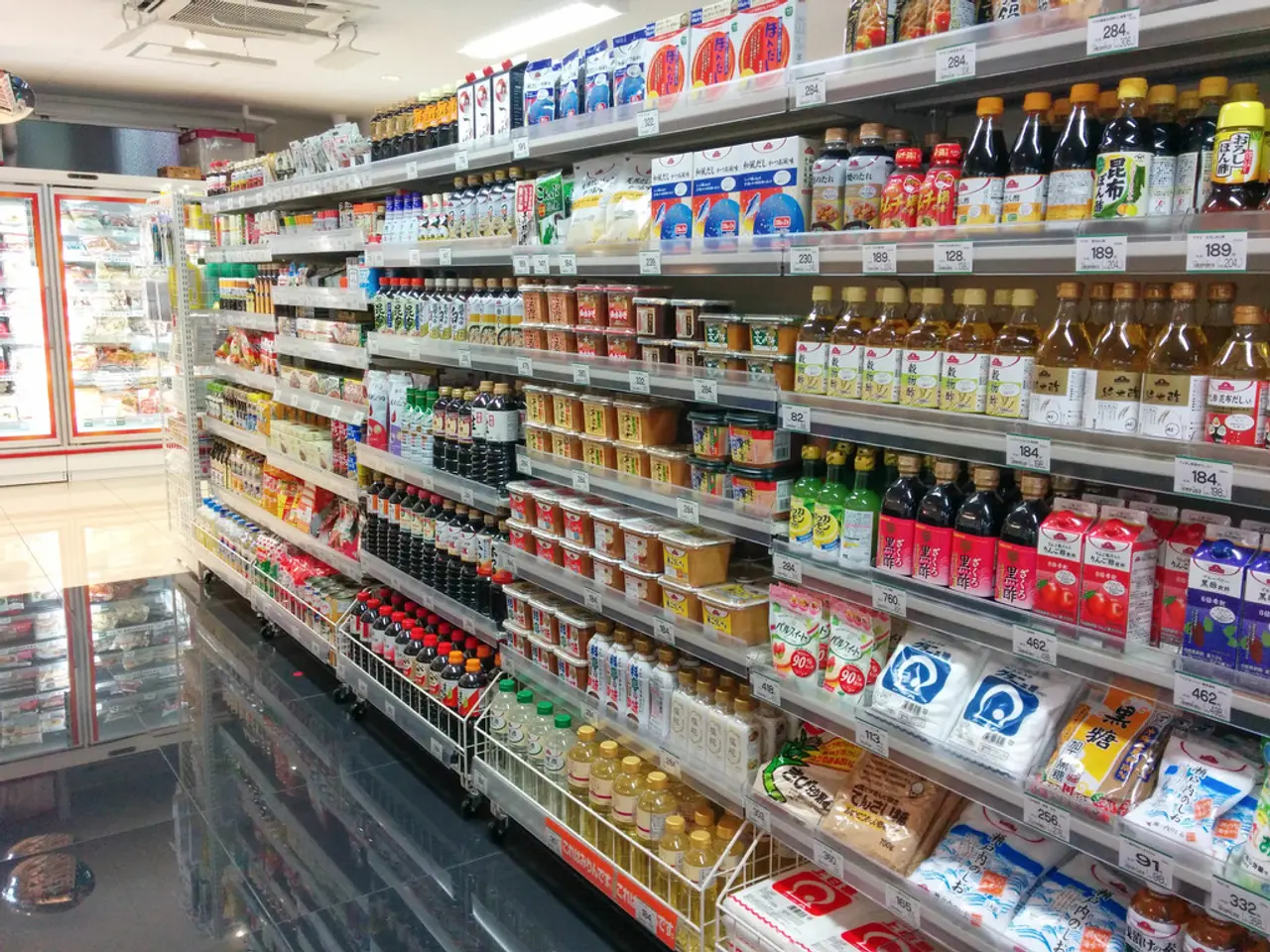Purchased items at Lidl, located in New York City.
In the heart of Harlem, New York, Lidl and Aldi, two popular German discount supermarkets, are making their mark in the American market. However, a closer look reveals a mix of challenges and opportunities for customers.
The clientele at Harlem Lidl reflects a diverse cross-section of Harlem's population, but some shelves are emptied by midday, a stark contrast to the well-stocked shelves in German Lidl stores. The range of products at "American Lidl" is limited compared to its German counterpart, with items like feta, mozzarella, and Red Bull costing more.
A study by the Tax Foundation suggests that further price increases are on the horizon due to Trump's trade policies. Indeed, the high cost of food in the US has become a political issue, with average food prices generally higher than in Germany, especially for imported goods like coffee and meat. For instance, ground beef prices rose by 12.8% and steaks by 16.6% year-on-year in August 2024, while a liter of milk costs about $1.25 and 1 kg of chicken $11.80 in Florida.
The inflation rate initially fell slightly after Donald Trump took office, but has since risen again and is now at 2.7%. Supermarket prices remain high and are still rising, with staples like eggs and milk costing several times what they did before the COVID-19 pandemic. The Consumer Price Index is currently almost 25% higher than it was in 2020.
Despite these challenges, Lidl and Aldi are growing in the American market. By 2028, Aldi plans to have 3,200 stores, making it one of the largest chains in the American market. Lidl, on the other hand, has nearly 200 stores in the USA, while Aldi has 2,567.
Interestingly, both Lidl and Aldi are low-key about their German origins in the US. A sign in a Lidl store reads, "Proudly sourced from U.S. Farms," a subtle nod to their commitment to supporting local producers.
However, not all is smooth sailing. Bags are not packed at the checkout in Harlem Lidl, and self-checkout machines are not available. The store at Harlem Lidl appears run-down due to cheap building materials, and the staff is significantly fewer compared to other stores.
Despite these issues, the high cost of food in American Lidl and Aldi is a concern for many customers. The high cost of food is a significant burden for many households, especially in light of the ongoing economic challenges posed by the COVID-19 pandemic. As Lidl and Aldi continue to expand in the American market, it will be interesting to see how they address these concerns and adapt to meet the needs of their customers.
Read also:
- Peptide YY (PYY): Exploring its Role in Appetite Suppression, Intestinal Health, and Cognitive Links
- Toddler Health: Rotavirus Signs, Origins, and Potential Complications
- Digestive issues and heart discomfort: Root causes and associated health conditions
- House Infernos: Deadly Hazards Surpassing the Flames








